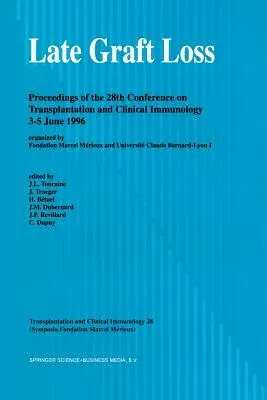Late Graft Loss: Proceedings of the 28th Conference on Transplantation and Clinical Immunology, 3-5 June, 1996 (Softcover Reprint of the Original 1stPaperback - Softcover Reprint of the Original 1st 1997, 29 October 2012

Qty
1
Turbo
Ships in 2 - 3 days
In Stock
Free Delivery
Cash on Delivery
15 Days
Free Returns
Secure Checkout
Part of Series
Transplantation and Clinical Immunology
Print Length
239 pages
Language
English
Publisher
Springer
Date Published
29 Oct 2012
ISBN-10
9401062862
ISBN-13
9789401062862
Description
Product Details
Book Edition:
Softcover Reprint of the Original 1st 1997
Book Format:
Paperback
Country of Origin:
NL
Date Published:
29 October 2012
Dimensions:
23.39 x
15.6 x
1.4 cm
ISBN-10:
9401062862
ISBN-13:
9789401062862
Language:
English
Location:
Dordrecht
Pages:
239
Publisher:
Weight:
371.95 gm

